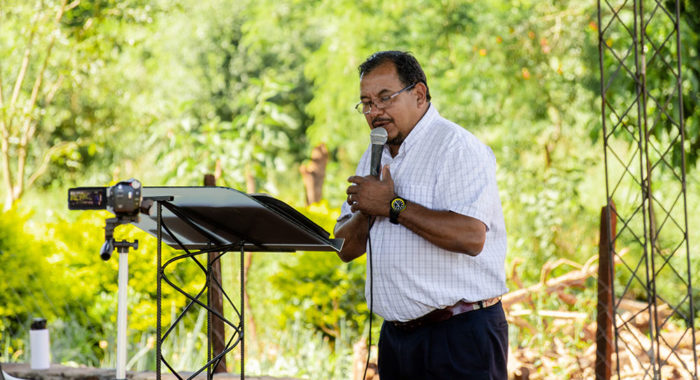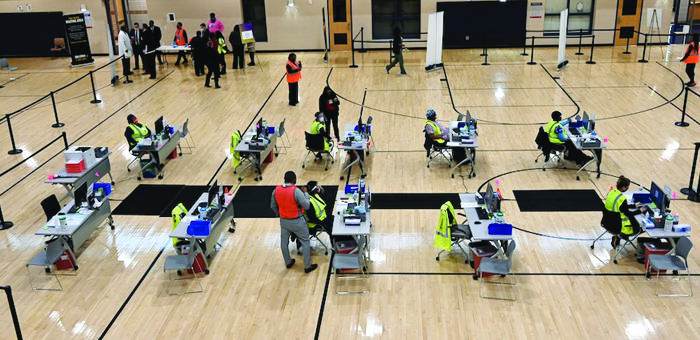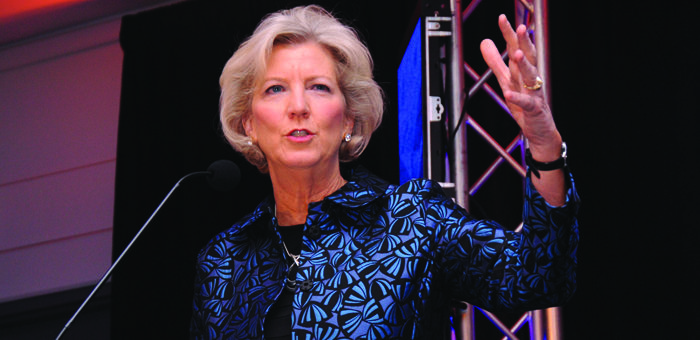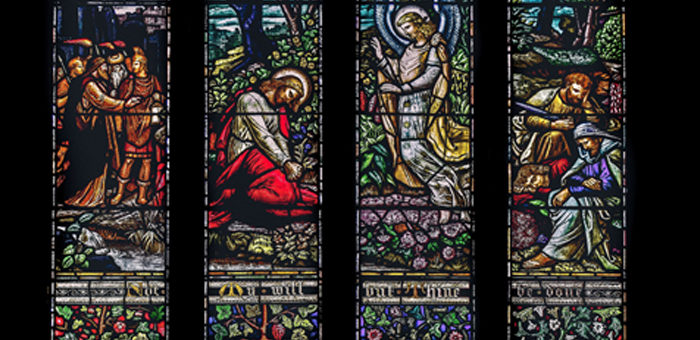Tom Grosh is the Northeast regional director for the Christian Medical and Dental Association (CMDA). In his role, he interacts with a wide range of constituents across many states — from healthcare professionals to student leaders of CMDA chapters at medical schools to local pastors. Grosh shared about the confusion during the early stages of the pandemic and the uncertainty about whether we were dealing with a short-term or long-term crisis. “We didn’t have concrete next steps about what to do. I was looking for something that would provide direction. Amid the challenges of COVID-19, the Humanitarian Disaster Institute and the National Association of Evangelicals served as first responders,” he said.
First Responders
From the beginning of the COVID-19 outbreak, the NAE has developed resources and facilitated access for Christian communities across the country to be equipped for this unprecedented crisis. Two initiatives that we deployed for this purpose were Care Package for the Church and Reopening the Church.
In addition, the NAE participated with Wheaton College’s Humanitarian Disaster Institute (HDI) in a multifaceted effort to equip churches and Christian leaders to navigate the complexity of the COVID-19 crisis. Together we launched a weekly webinar and town hall series on March 13 — the same day that the U.S. national emergency was declared. We also co-hosted the COVID-19 Online Church Summit in late March. HDI produced a host of print and multimedia resources that resulted in nearly 30,000 trained people all over the world. The impact of these resources has been profound, and the resilience of Christian communities has shone brightly.
Critical Communication
What became evident fairly quickly was that the COVID-19 crisis was not simply a short-term issue. In their March 20, 2020, article “Leading Beyond the Blizzard: Why Every Organization is Now a Start-Up,” Andy Crouch, Kurt Keilhacker and Dave Blanchard provided a framework for understanding the pandemic as much more than a short-term crisis. They outlined the implications for churches, ministries and organizations as the immediate crisis that appears to be a “blizzard” is sometimes more accurately understood as a “winter,” and in some cases, might even represent an “ice age” — signaling a longer-term state of affairs.
Referencing that article, Grosh identified how critical it is for leaders to adapt to this progression by pacing themselves. Just as important is how they calibrate the expectations of their constituents through accurate and frequent communication. “What I found is that the conversation needs to happen slowly,” he said.
Grosh found the weekly webinars co-hosted by the NAE and Wheaton’s HDI to be very helpful and insightful in two important ways. First, they featured a diversity of perspectives from leaders in different contexts, which was essential for understanding the complexity of the crisis and that a one-size-fits-all approach would not be effective.
Second, the webinars equipped Grosh with not only the scientific information but also the language to use in communicating clearly with pastors and ministry leaders. “We live in such a polarized age,” Grosh said. The NAE-HDI webinars helped him articulate clear and sound reasoning to church leaders for taking certain actions, such as masking, social distancing and moving to online services. “As the COVID-19 sprint became a marathon, I confidently recommended not only HDI’s ongoing weekly webinars and Spiritual First Aid Summit, but also their timely and thorough handbooks.”
Grosh summed up the impact of the NAE-HDI resources in the following way: “My ability to give wise counsel to: a) my colleagues as we struggled to make decisions in how to offer campus ministry across the Northeast; and b) healthcare professionals as they sought to respond to inquiries by their church boards was a direct result of the valuable and thoughtful content presented by HDI. I anticipate HDI’s ongoing partnership with the National Association of Evangelicals, especially in the area of spiritual and mental health, will be invaluable. Furthermore, a number of HDI’s resources were influential in the tough decision making of how the local congregation where our family worships responded to COVID-19.”
A Global Reach
The impact of the NAE-HDI partnership was felt not only in the United States but internationally as well. A leader of a significant denomination in Indonesia shared how these resources were used to bless many in that country. The denominational leaders formed a task force to address the unprecedented challenges introduced by COVID. They also encouraged every local church to establish its own task force. When the HDI resources were made available, the denomination translated them into Indonesian and distributed them to 43 churches across the country. The result was that as many as 15,000 people were equipped with actionable information for how to worship safely and to support one another through the crisis.
During such a tumultuous and chaotic year, it is heartening to see Christian leaders and communities near and far coming together to learn and respond to the pandemic with wisdom, courage and compassion. At the NAE, we understand that leading in these times can be very complex and challenging. That’s why we seek to resource, connect and mobilize evangelical leaders to navigate the complexity with clarity and to offer the hope of the Good News that transforms lives and communities.
This article originally appeared in Evangelicals magazine.
Since July 2020, Cullen Rodgers-Gates has been serving as the director of development and membership at the National Association of Evangelicals. In this role, he established and leads the NAE’s development program while also engaging with a growing community of active members. Prior to his work at the NAE, Rodgers-Gates spent 20 years in international service-learning and nonprofit leadership, including six years as executive director of Congo Initiative USA. Rodgers-Gates holds two degrees from Wheaton College: a bachelor’s degree in philosophy and a master’s degree in historical and systematic theology.




 View All Articles
View All Articles 




























